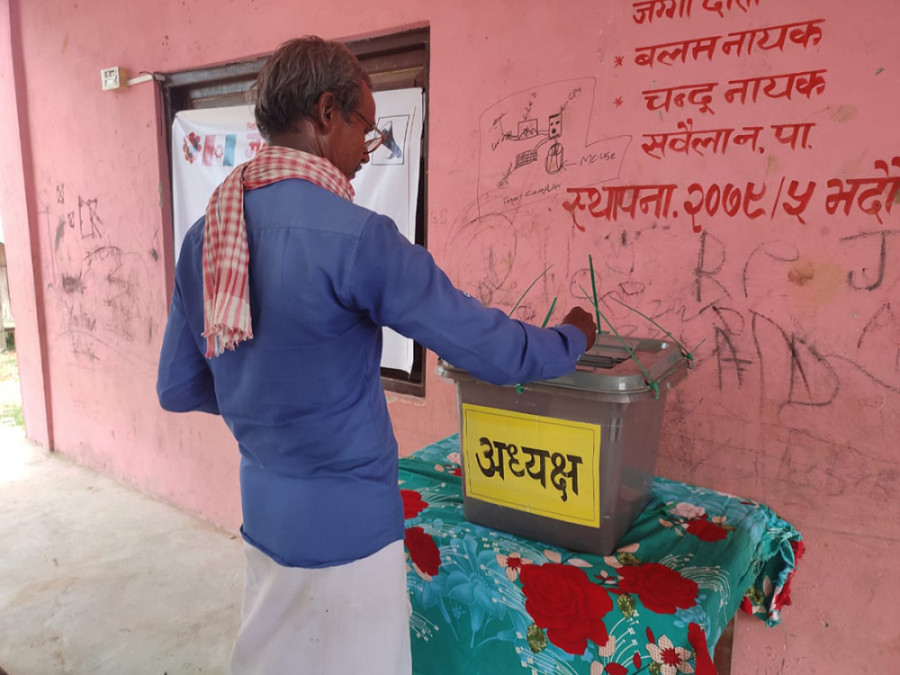Politics
Janamat begins its ‘right to recall’ practice
Voting to determine the performance of the elected representatives starts from 22 different polling stations. The practice, however, is not recognised by Nepal’s laws.
Nishan Khatiwada
In accordance with its election manifesto, the Janamat Party has started the right to recall practice. The practice, however, is not recognised by Nepal’s laws.
The Janamat Party, on Saturday, conducted voting at the local levels to check whether the performance of the party’s local representatives were satisfactory, with an aim to ascertain the approval rating of the representatives.
Voting to determine the performance of the local representatives, such as municipality chairs, vice chairs, and ward chairs, was held in 22 different polling stations.
According to the party leaders, only one of the 22 local representatives got majority negative votes. The ballot box had two options—whether the performance of the representative is satisfactory or not.
Only those party members who joined the organisation before the May local elections last year were eligible to vote. Party leaders say once the public fully gets to know of the new practice, the party plans to hold open voting among them. “There is a chance that without adequate literacy, people affiliated to different parties might vote negatively in a biassed manner. Thus we opened the voting only for the party members,” said BP Sah, the Janamat Party national secretary.
Basically, the right to recall allows the public to remove elected representatives from office before their term expires, if they are not fulfilling their duties or are involved in corruption or malpractices.
The party will now warn the representatives and lawmakers who have received less than 50 percent positive votes. “If they get similar results next year, they will be punished. This time, we will warn them because the practice is new to them and soon after the local polls, the whole focus of the country was diverted towards the general elections,” said Sah.
The party will conduct the voting every year. It has scheduled the voting for the provincial lawmakers on August 19. The voting will be conducted for the federal level lawmakers as well.
Leaving the traditional parties flabbergasted, the CK Raut-led Janamat Party, in its maiden parliamentary election, secured six seats in the House of Representatives and became a national party. Observers say the party has emerged as a strong popular force in Madhesh and the right to recall practice is a welcome move.
“In Nepal, once a leader or representative is elected, their accountability gets sidelined,” Sohan Sha, a Madhesh observer, said. “This trend has long gripped our country.”
Sha added that the practice makes voters confident and empowers them. “Especially in Madhesh, elected leaders and representatives think they can abuse their authority and get off scot-free.” Sha said. “The practice gives them a message that they are public servants and are accountable to them.”
Since the practice is not recognised by law, some observers do not think that it will make a significant difference. Even if the elected officials are removed from office, without the Election Commission’s green signal, the process will not go further.
Dolakh Bahadur Gurung, former chief election commissioner, argues the practice is just a strategic move of the party, aimed to attract voters. “If it was mandated by law and constitutional agencies, the Election Commission also had to cooperate to carry out the elections, and all the parties had to follow it,” he said.
Party national secretary Sah agrees that it is a major challenge to make the drive a success. “It is fully a party initiative. It is unsure how the Election Commission will cooperate,” said Sah.
According to Sah, though one option is disciplinary action, it would not be right to do so. “I hope this practice will be fully recognised by the law,” he said.




 18.12°C Kathmandu
18.12°C Kathmandu















